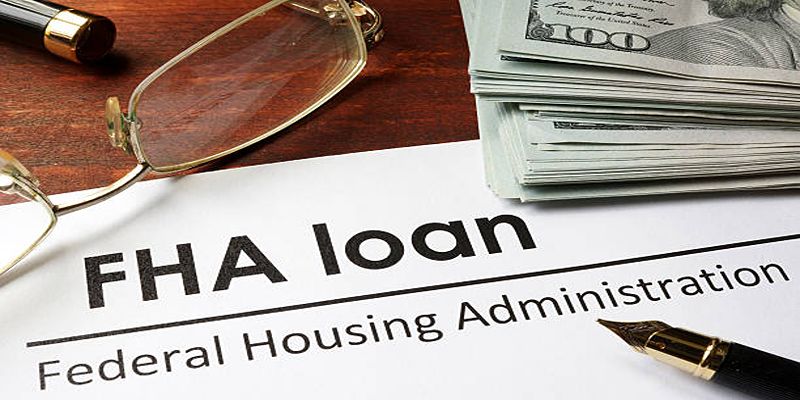Everything You Need to Know to Qualify for an FHA Loan
Qualifying for an FHA loan can make owning a home more accessible, especially if you’re a first-time buyer or have limited savings. FHA loans are backed by the Federal Housing Administration and are designed to help people with lower credit scores or smaller down payments. They come with flexible requirements, making it easier for many to achieve their dream of owning a home. This guide will explain everything you need to know to see if an FHA loan is right for you.
What is an FHA Loan?

A mortgage credit product from the Federal Housing Administration receives insurance through the U.S Department of Housing and Urban Development (HUD). Under this insurance program lenders keep protection from loan losses when borrowers fail to repay their debts. The insurance protects lenders who lose some of their investment through default. Due to lower risk regarding these loans lenders are more open to financing borrowers with weak credit ratings and little money for down payments.
Benefits of FHA Loans
As mentioned, FHA loans come with flexible requirements and can be beneficial for many potential homeowners. Some of the most significant advantages include:
- Lower down payment requirement: FHA loans require a minimum down payment of 3.5%, which is significantly lower than the traditional 20% down payment required for conventional loans.
- Lower credit score requirement: While conventional loans typically require a credit score of at least 620, FHA loans may be available to borrowers with credit scores as low as 500, though some lenders may still have their own minimum requirements.
- Higher debt-to-income ratio allowance: With an FHA loan, you may be able to qualify with a higher debt-to-income (DTI) ratio. This means that your monthly debt payments can make up a higher percentage of your income, making it easier to qualify for the mortgage loan.
Requirements for Qualifying
While FHA loans have more lenient requirements compared to conventional loans, there are still some qualifications you must meet to be eligible:
- Credit score: The minimum credit score required for an FHA loan is 500. However, most lenders prefer a credit score of at least 580.
- Down payment: A down payment of at least 3.5% is required for an FHA loan. This can be paid with your own funds, a gift from a family member, or through down payment assistance programs.
- Income and employment: You must have a steady income and be able to provide proof of employment or income for the past two years. In some cases, non-traditional sources of income may be accepted.
- Debt-to-income ratio: Your monthly debt payments (including the potential mortgage payment) should not exceed 43% of your gross monthly income.
- Property appraisal: The property you are purchasing must meet certain standards set by HUD and undergo an appraisal to determine its value.
Property Requirements
In addition to the borrower's qualifications, the property itself must meet certain requirements set by HUD. These include:
- Living in the property: FHA loans can only be used for primary residences, meaning you must live in the property you are purchasing.
- Property type and condition: The property must be a one-to-four unit dwelling that meets HUD's minimum health and safety standards. It must also have adequate heating, water, and electrical systems.
- Maximum loan amount: FHA loan limits vary by location, determining the maximum amount you can borrow. To check the limit for your area, visit HUD's official website.
FHA Loan Limits
FHA loans come with borrowing limits determined by HUD, which vary depending on your location. For most areas, the current limit for a single-family home is $356,362, while in high-cost regions, it can reach up to $822,375. These limits are reviewed and may change annually, so it’s important to check HUD’s website for the latest updates.
Applying for an FHA Loan
The first step in applying for an FHA loan is to find a lender that offers these types of loans. You can search online or ask your real estate agent for recommendations. Once you have chosen a lender, they will guide you through the application process, which typically involves:
- Prequalification: This is when the lender reviews your financial information and credit score to determine if you are eligible for an FHA loan.
- Documentation: You will need to provide documents such as pay stubs, tax returns, and bank statements to verify your income and assets.
- Underwriting: The lender will review all of the documentation provided and make a final decision on whether to approve your loan.
- Closing: If your loan is approved, you will sign the final paperwork and pay any closing costs. You will then officially become a homeowner!
Common Mistakes to Avoid
When it comes to applying for an FHA loan, there are a few common mistakes that borrowers should avoid. These include:
- Not shopping around: FHA loans have standard requirements, but rates and fees vary by lender. Compare offers to get the best deal.
- Not understanding the costs: While FHA loans may have lower down payment requirements, they still come with closing costs and mortgage insurance premiums. Make sure you understand all of the costs associated with the loan before committing.
Tips for First-Time Homebuyers

FHA loans can be a great option for first-time homebuyers, as they offer more flexibility and lower requirements compared to conventional loans. If you're considering applying for an FHA loan, here are some tips to keep in mind:
- Check your credit score: While FHA loans may accept lower credit scores, it's still important to aim for the highest score possible. This can help you secure a better interest rate and improve your chances of getting approved.
- Save for a down payment: While 3.5% is significantly less than the traditional 20% down payment required for conventional loans, it's still a significant amount of money. Start saving early to make sure you have enough funds for your down payment.
- Work with a reputable lender: When making such a significant investment, choosing a trustworthy and reliable lender is essential. Take the time to research and select a lender with proven experience in FHA loans and a strong track record of positive client reviews.
Conclusion
FHA loans offer an attractive option for those looking to purchase their first home or who may not meet the strict requirements of conventional loans. With more lenient qualifications, assistance with down payments, and lower credit score requirements, FHA loans can be a great way to achieve homeownership. However, it's important to carefully review the qualifications and requirements and work with a reputable lender to ensure a smooth application process.











